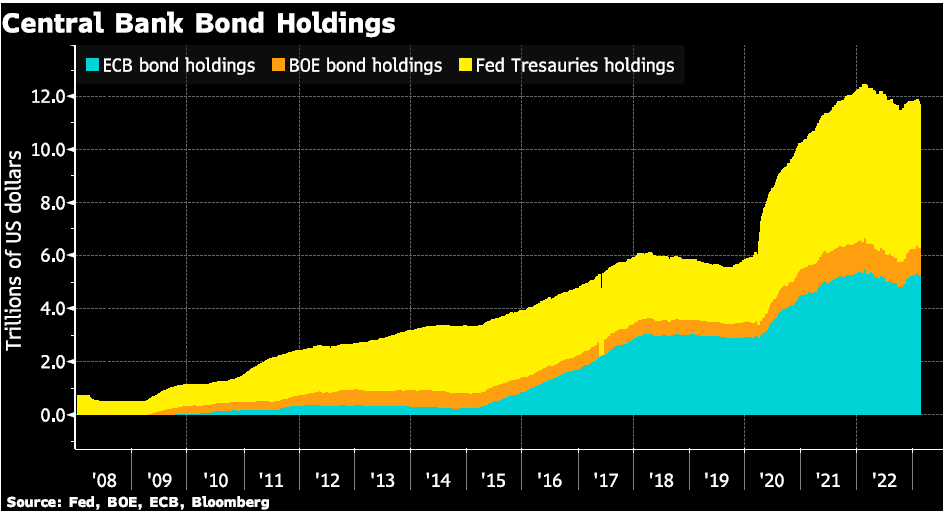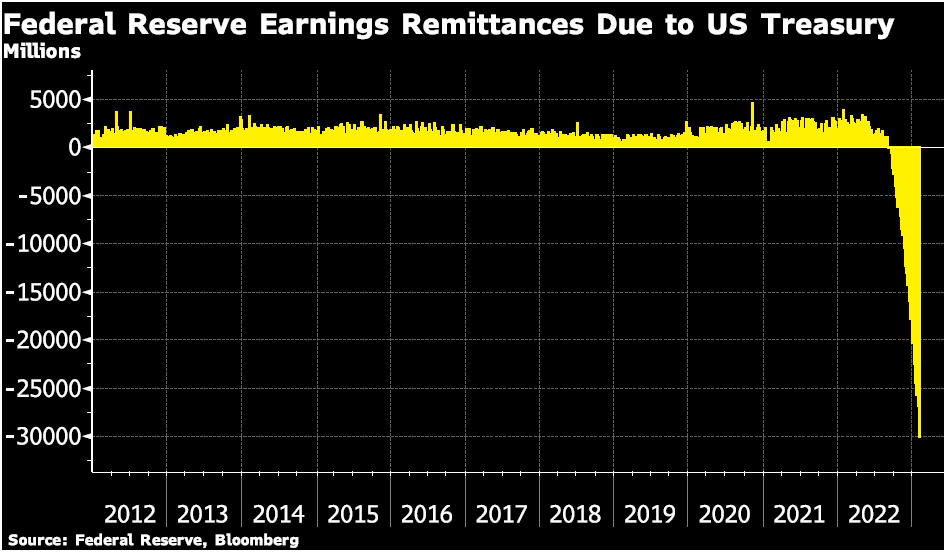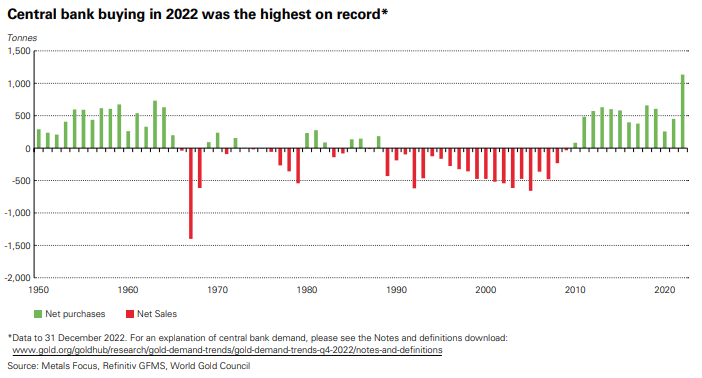Apparently Central Banks Are “Safeguarding The Value Of Money” – Seriously?
“The soul of money is trust. To operate effectively, businesses must maintain the trust of investors. And central banks must maintain the trust of the public.
Governments also have a role to play in the face of today’s central banks’ losses. Because these institutions are ultimately backed by the state, trust in money requires sound government finances and good financial management.”
The above quote is an excerpt from an Op-ed article on February 9, 2023, from Mr. Agustin Carstens, General Manager of the Bank of International Settlements (BIS: The BIS’s website states its mission is to support central banks’ pursuit of monetary and financial stability through international cooperation and to act as a bank for central banks.)
The purpose of the February 9 speech was to try and convince the public that central bank losses don’t matter. And that ‘central banks are designed to make money only in the literal sense’.
Also, their mandate is not to make a profit but to act in the public interest. And to safeguard the value of the money they issue so that people can make financial decisions with confidence.
Safeguarding the value of money?
Woah! How is printing trillions worth of currency and buying assets that are now losing value from their own doing ‘safeguarding the value of money’? The European Central Bank, Bank of England, and the Federal Reserve more than doubled their bond holdings since 2020 to over $12 trillion. Many of those bonds are worth less today than when purchased.
At the same time, central banks pushed interest rates to zero and encouraged everyone – households, businesses, and governments to spend! And now all that money is chasing too few goods – the simple definition of inflation and central banks are raising interest rates at a rapid pace. As they raise interest rates the bonds held on their balance sheets lose value.
(Click on image to enlarge)

Central Bank Bond Holdings Chart
The Federal Reserve was the primary culprit in the bond buying spree and it is now ‘carrying’ a $30 billion loss to the U.S. Treasury.
The ironic part is that it is U.S. Treasury securities that it holds on its balance sheet, that are racking up the loss, and that it now has a balance owing to the U.S. Treasury.
(Click on image to enlarge)

Federal Reserve Earnings Remittances Due to US Treasury Chart
Up until September 2022, the Federal Reserve transferred its ‘excess earnings’ to the U.S. Treasury on a weekly basis. However, since September 2022 the Fed’s earnings have not been sufficient to cover costs (operating costs, payment of dividends, etc.) and the Fed started recording the shortfall as a ‘deferred asset’.
This deferred asset will continue to grow as losses mount on the Fed’s balance sheet and then, in theory, will start to decline once the central bank starts to make a profit again. Once this ‘deferred asset’ is exhausted the Fed will then start to remit profits to the U.S. Treasury again.
If it is all accounting fixes, when does the ‘line in the sand’ get crossed that makes it different than a country like Venezuela or Zimbabwe where the central bank printed money to fund the government directly, were all ‘trust’ was eroded with hyperinflation?
In the literal sense, central banks are not unsound if their assets lose value. However, the ‘trust of the public’ is eroded. The reason the assets are losing value is the quick pace of interest rate hikes. This as stated above is only an accounting adjustment for the central bank, but the same is not true for mortgage holders.
Can we trust governments?
Mortgage holders don’t get to tell the bank to add it to ‘a deferred asset’ column on the account – or what about the homeowners trying to sell houses as interest rates rise? One could argue house prices were overvalued because of the ultra low interest rates, which again goes back to central banks ‘public trust eroded’.
What about governments – how can we have trust that governments will make ‘sound financial decisions’. Most governments were debt-burdened before the covid pandemic by running deficits year after year. Then during the crisis, governments issued trillions of debt. All that have to be paid back or rolled over, but at what cost? To pay it back means reducing their spending relative to income. This means either cutting government services or raising taxes, or both.
Austerity measures (defined as difficult economic conditions created by government measures to end a budget deficit, especially by reducing public expenditure) don’t last as governments that implement these measures are voted (or forced) out of office.
Plus, many government programs are designed to support lower income households that need the support, especially during times of rising prices. And to raise taxes, well that is also challenging for governments to do in a meaningful way without creating more bureaucracy that ends up sucking up the amount raised through higher taxes.
It is not only since the pandemic that central banks have not been safeguarding the value of the money. As our post on February 9, This Will Be The Biggest Theft of This Century shows – money depreciation is an ongoing phenomenon, the British pound and US dollar are worth about three times less than they were in the early 1980s.
It is no coincidence that World Gold Council data shows that Central Banks themselves bought the most gold on record in 2022 – goes to show that even central bankers know that “trust in money” is eroded!

Central Bank Buying in 2022 Chart
More By This Author:
U.S. Federal Reserve Sticks To The Script But For How Long?
China And The U.S. At Sovereign Debt War
Gold And Silver Chart Analysis January 2023
Disclosure: The information in this document has been obtained from sources, which we believe to be reliable. We cannot guarantee its accuracy or completeness. It does not constitute a solicitation ...
more


